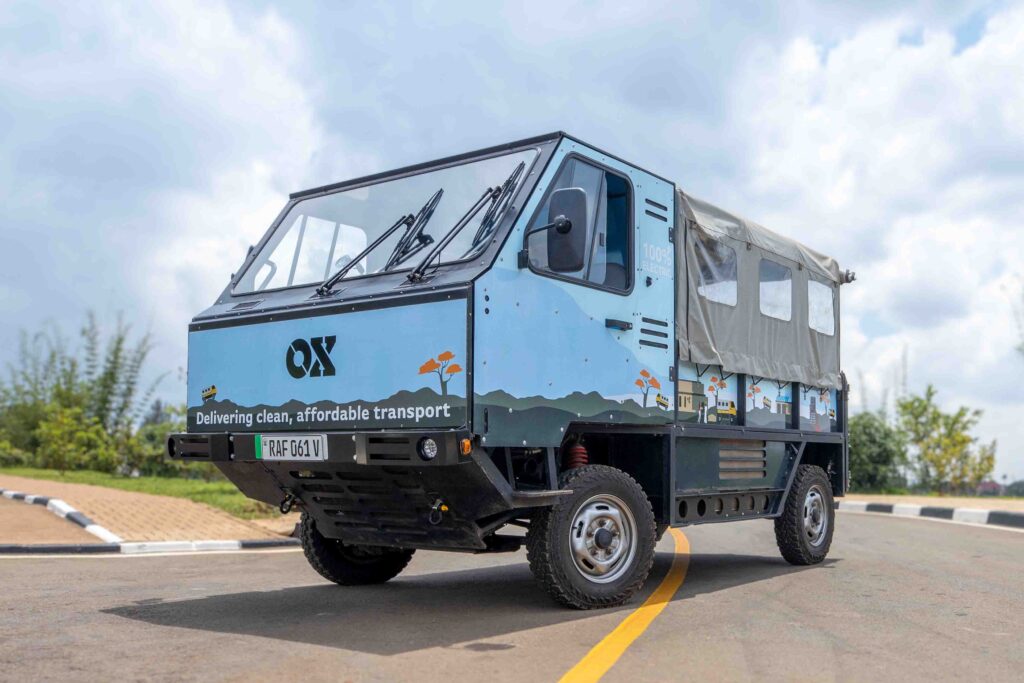Top three benefits:
- Save on transportation running costs.
- Reduce the carbon footprint of the company.
- Extend the reach of delivery agents in a convenient way.
Top three challenges:
- High purchasing costs might be prohibitive.
- Rural markets lack battery charging infrastructure.
- Some countries have no or few suppliers offering robust vehicles.

Photo credit: OX Delivers
Trailblazers:
- Mobile Power has developed a battery swap network for motorcycle taxi drivers in Sierra Leone.
- Jumia has partnered with various e-bike and e-cycle companies in Kenya and Ghana to replace part of their existing fleet and offer affordable and eco-friendly deliveries to consumers.
- Ampersand builds e-bikes and charging systems optimised for the five million motorcycle taxi drivers in East Africa.
- OX Delivers (GDC member) offers on-demand logistics in emerging markets using zero emissions trucks. Read our spotlight on OX here.
- Let us know who else should be on this list
Resources:
- Recurring events such as this Africa e-mobility Forum that was held by UNEP in March 2023.
- Networks and communities such as the Association for Electric Mobility & Development in Africa (AEMDA).
- Connect with development organisations implementing e-mobility programmes, such as GIZ that is promoting India’s transformation to sustainable and climate-friendly e-mobility from 2021 to 2025. Siemens Stiftung has programmes in Africa and donors like UK aid-funded PREO, EEP, USAID DIV and P4G have a track record financing electric vehicle projects.
- See if you can influence national policies together with other organisations and inform roadmaps such as this roadmap in Kenya! that was commissioned by the German Embassy in Kenya.
